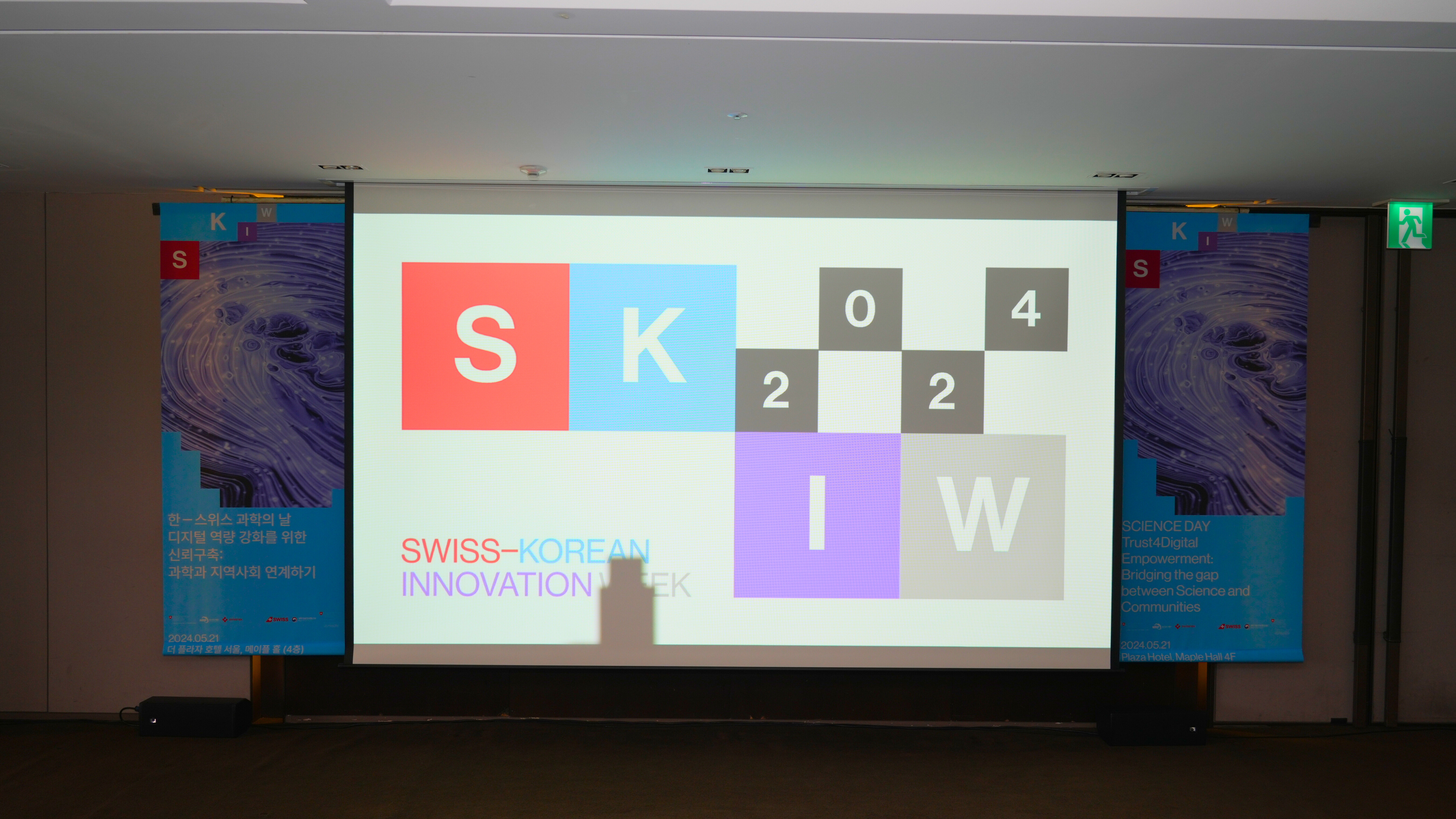Exploring Digital Trust: UZH Contributes to the 2024 Swiss-Korean Innovation Week
Since its inception in 2018, the Swiss-Korean Innovation Week has emerged as the annual flagship event of the Swiss Embassy to the Republic Korea. For the second consecutive year, researchers from UZH have taken center stage with their work on “Digital Trust” in the areas of blockchain and democracy studies.
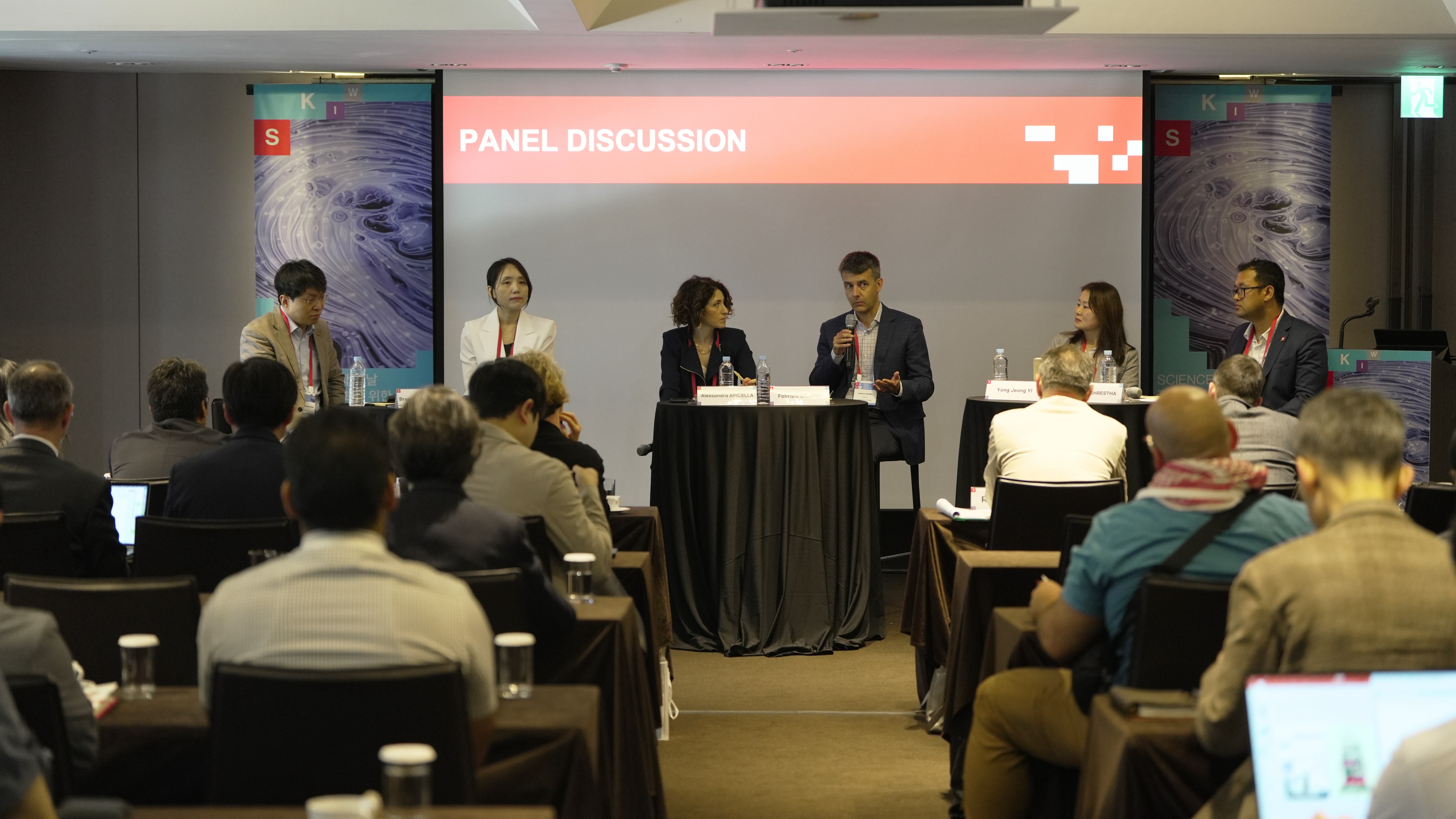
The Swiss-Korean Innovation Week has become a central event, strengthening ties between Switzerland and the Republic of Korea (“Korea”) in science, technology, innovation, and the creative industries. This dynamic platform has been advancing bilateral cooperation and promoting innovative collaborations since 2018.
From economic struggles to a world leader in digital transformation
Since the end of the Korean war in the 1950s, Korea has transformed into a thriving democracy and an economic powerhouse. Notably, Korea excels in digitalization, ranking alongside Switzerland among the world's most digitally competitive societies according to IMD’s “World Digital Competitiveness Ranking”.
Given their shared prominence in digital innovation, the 2024 edition of the Swiss-Korean Innovation Week, held across various venues in Seoul from 20-24 May 2024, focused on the timely theme of “Digital Trust”.
The importance of digital trust in a connected world
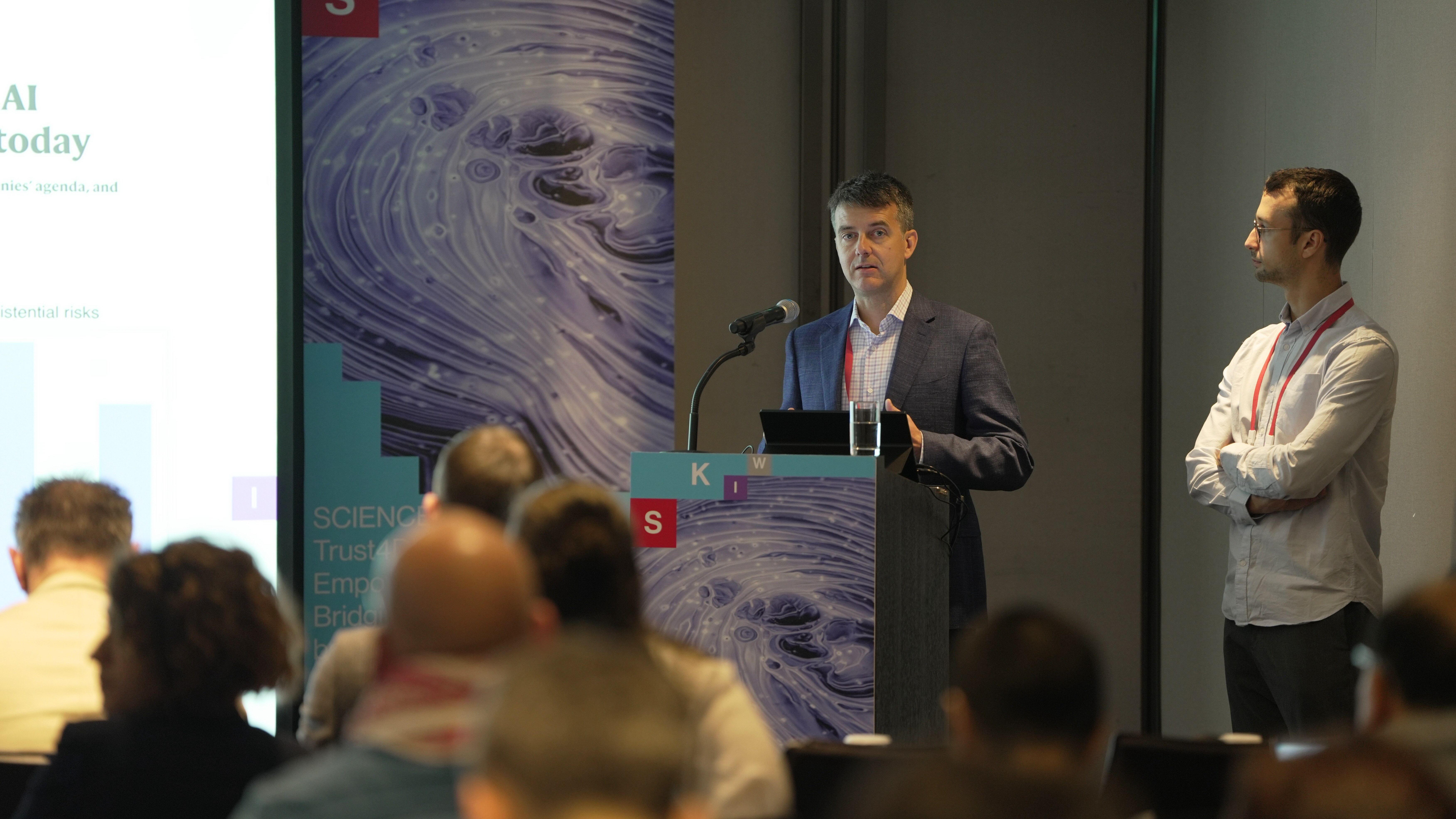
In today's digital age, trust is the cornerstone of a secure and inclusive society. It is essential for driving economic transactions, safeguarding privacy, and fostering collaboration and innovation, ultimately leading to progress and prosperity.
During the main event of the Swiss-Korean Innovation Week, the “Science Day”, Professor Fabrizio Gilardi, Chair of Policy Analysis, and Dr. Sacha Altay, an experimental psychologist, both from UZH’s Department of Political Science, discussed the implications of digital technology, including AI-generated content, for politics and democracy. They examined how generative AI can shape public discourse and influence policy.
According to Fabrizio Gilardi and Sacha Altay, AI's role in public discourse is a double-edged sword, presenting both opportunities and challenges. They emphasized the importance of an accurate description of AI-generated content to avoid unintended negative effects, stating that “alarmist narratives about the impact and prevalence of AI-generated misinformation may erode trust in true content, whether it’s AI-generated or not”.
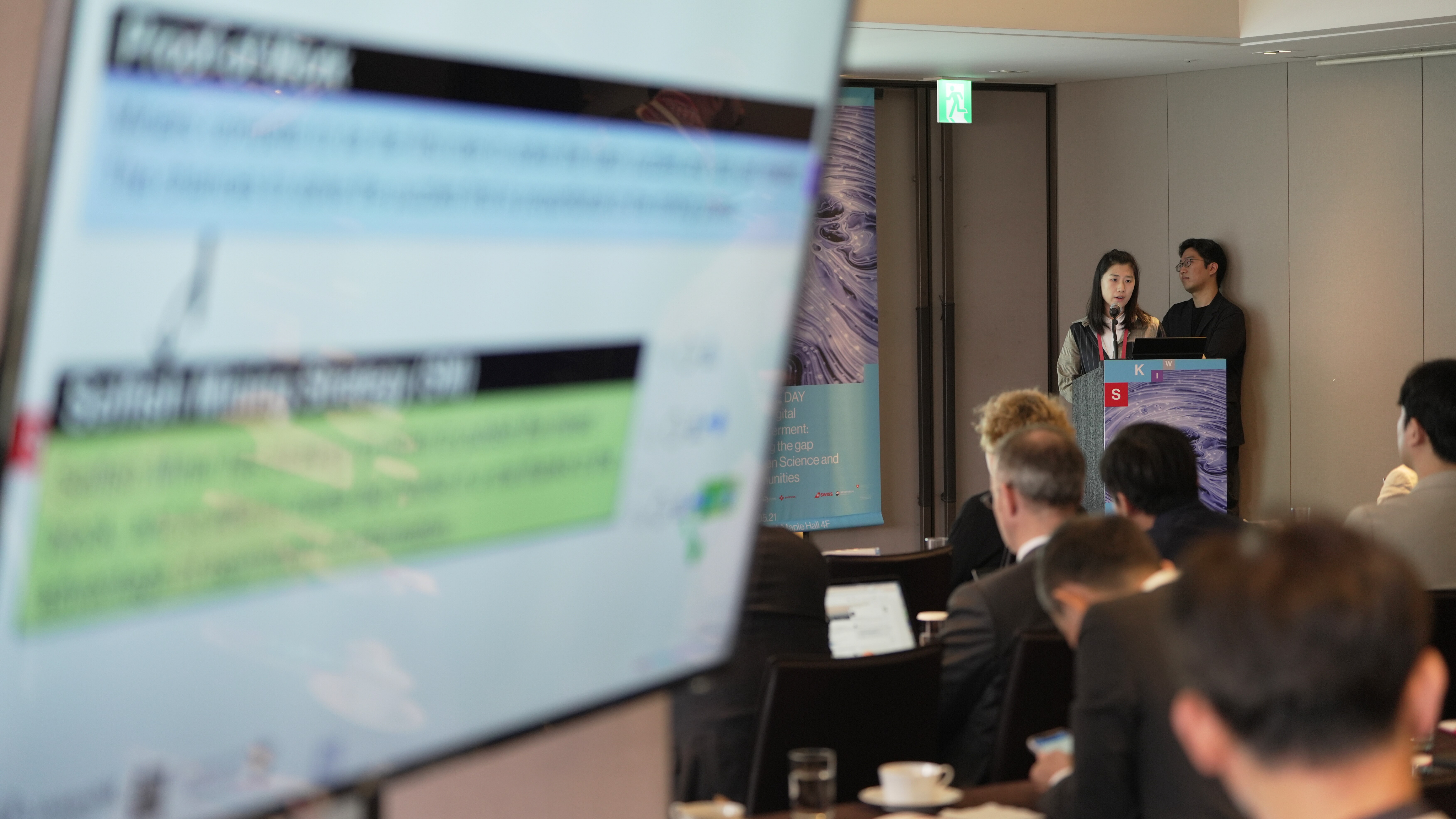
Dr. Shengnan Li and Dr. Taehoon Kim, both postdoctoral researchers in the Blockchain and Distributed Ledger Technologies group and members of the UZH Blockchain Center, shared their findings in collaboration with Professor Claudio Tessone on how decentralised platform ecosystems can address societal challenges by enhancing trust. “Three foundational pillars – honesty, fairness, and sustainability – are essential for building, maintaining and reinforcing trust in blockchains and other decentralised digital platforms,” said Shengnan Li. Taehoon Kim elaborated further that “blockchain technology provides a means to cast otherwise anonymous digital activity to on-chain, which makes it transparent and accessible, leading to digital trust for various applications”.
Expanding collaborations and building connections
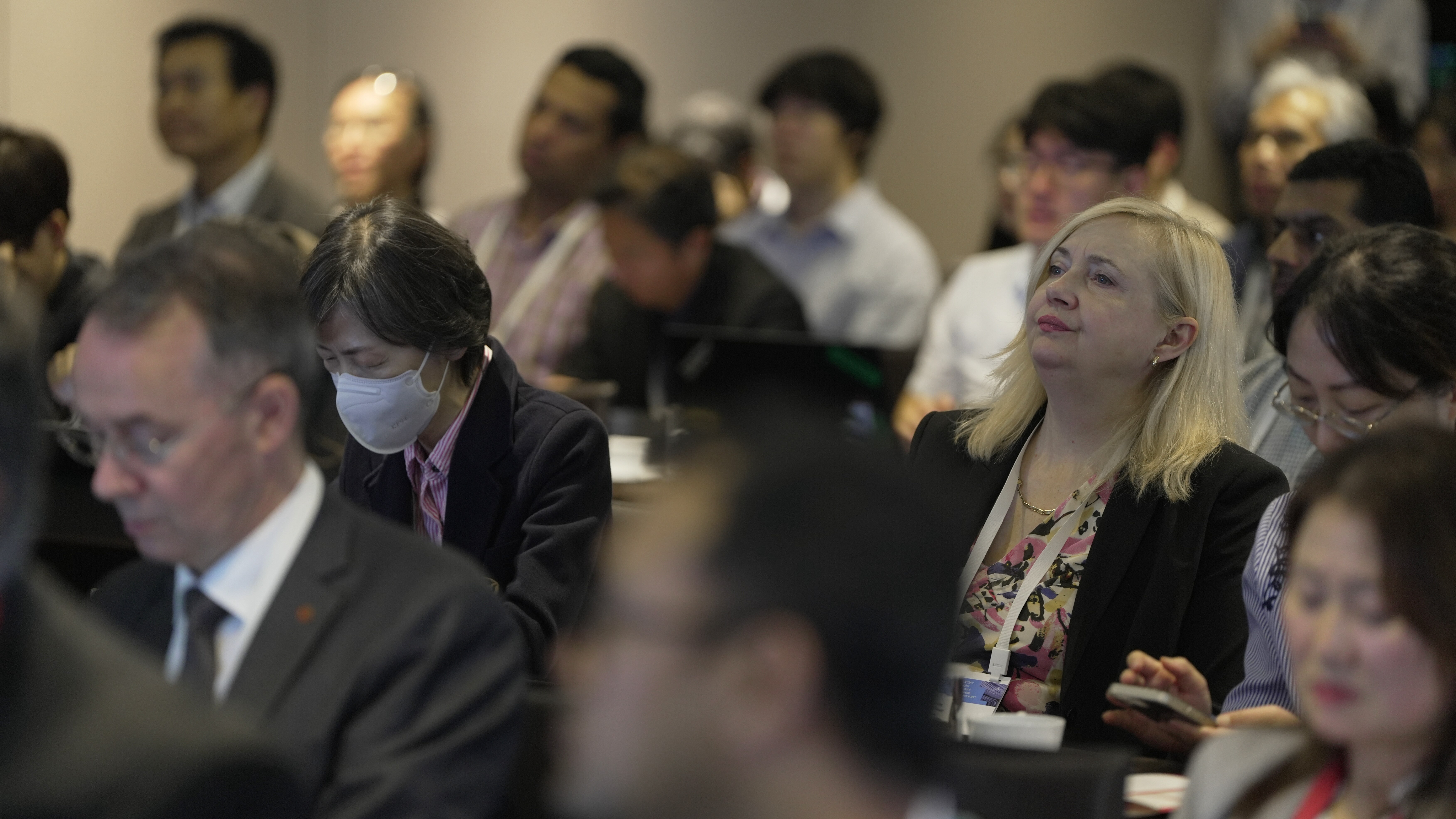
The UZH researchers used their time in Korea to engage with local researchers and participate in additional events and visits. The UZH Blockchain Center actively participated in the “Digital Asset Workshop 2024”, organized by the Korea Society of Blockchain. This event, which aimed to promote the adoption of cryptocurrency and blockchain technology in Jeonbuk province, located in the southwest of the Korean peninsula, was held at Jeonbuk National University. Additionally, Professor Gilardi delivered a lecture and met researchers at the Center of Intelligent Society and Policy of Seoul National University, a leading Korean research university.
%20to%20the%20Seoul%20City%20Hall%20-%20bearbeitet.jpeg)
In addition to democracy studies and blockchain, UZH has longstanding ties with Korean research partners, particularly in biology, medicine, and neuroinformatics. Beyond research, there is an active student exchange and mobility program between UZH and Korean universities, reflecting the growing interest in Korean culture and language among Swiss students.
Raphael Kunz
